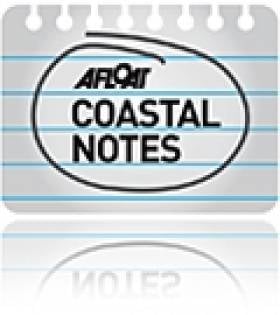Displaying items by tag: Minister Hogan
Minister Rejects Public Inquiry into Dublin Bay Oil Drilling
#DALKEY ISLAND PROSPECT – Environment Minister Phil Hogan has rejected a call by Tánaiste Eamon Gilmore and others for a public inquiry into Providence Resources foreshore licence application to survey and drill for oil and gas in Dublin Bay, the Irish Times reports.
Mr Hogan has said that as the application by Providence Resources for survey and drilling work 6kms off Dalkey Island was the subject of public consultation, he did not consider a public inquiry "necessary".
Tánaiste and Labour Dún Laoghaire TD Eamon Gilmore said earlier yesterday that Mr Hogan should exercise his right to hold an oral hearing under the foreshore legislation. Last month, the Green Party and a number of residents in the Dalkey area also called for an inquiry.
Speaking in Galway yesterday, Mr Gilmore acknowledged that a "couple of wells" had been drilled in Dublin Bay previously, but there were a "lot of issues" relating to the current application.
To read more about this story click HERE
#DALKEY ISLAND PROSPECT- At a public meeting held by Dalkey Community Council last night, it was almost unanimously agreed that a public enquiry should be held over the foreshore licence sought by Providence Resources to carry out exploratory drilling for oil and gas, in the Kish Bank basin, some 6kms off Dalkey Island, writes Jehan Ashmore.
Over 200 residents attended the meeting in Dalkey Town Hall where they heard Tanaiste Eamon Gilmore and Dun Laoghaire-Rathdown County Councillors deal with the issues raised over the proposed seismic survey and exploratory well drill. Among the major issues was the project's proximity to the populated coastline and its special areas of conservation. It was pointed out that Norwegian drilling operations took place at least 25km offshore.
Mr. Gilmore said the fisheries conservation order in which he was engaged with during his role as Minister of State for Marine would form part of his personal submission to the Department of the Environment. When questioned from the floor if he would make his submission public, he said that for transparency he would do so "reflecting concerns of his constituents".
Providence Resources were invited to attend the meeting, but they declined on grounds of the size of the meeting, though small groups can discuss the exploratory drilling of the 'Dalkey Island' prospect at their Donnybrook headquarters.
The company have said that the work they want to do is purely exploratory and relatively low-key and that it can be undertaken unnoticed, with no adverse environmental effects.
Tom Kivlehan of the Green Party, who had last week called on Minister of the Environment Phil Hogan to establish a public enquiry, said: "There are huge concerns among the people of Dublin about the proposed application and they feel that the process does not afford them the opportunity to have their questions and worries answered."
Mr Kivlehan emphasised, however, that the risks and benefits must be balanced. This point was also made by former Green Party T.D. Ciaran Cuffe who said that while untold damage could be done, "we must evaluate everything very carefully."
People Before Profit T.D. Richard Boyd Barrett said he was "absolutely opposed" to the proposal and the impact it would have on Dublin Bay as an amenity and to tourism. He called at the very least for a public enquiry to be carried out before a decision on granting the licence is made and claimed that there were no guarantees that any oil would be discovered or the potential financial benefits of a find would go to the Irish people.
- Dublin Bay
- dlrcoco
- Green Party
- Dalkey Island
- Providence Resources
- Kish Bank Basin
- Dalkey Island Prospect
- Dun LaoghaireRathdown County Council
- Coastal Notes
- Dalkey Community Council
- Foreshore License
- Department of Environment
- Tanaiste Eamon Gilmore
- Dalkey Town Hall
- Exploratory Drilling
- Public Enquiry
- Minister Hogan






























































